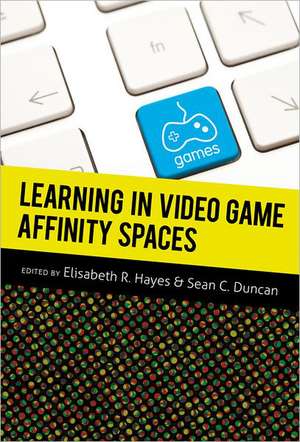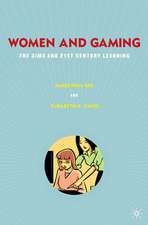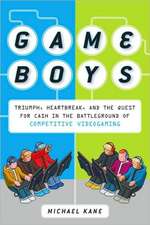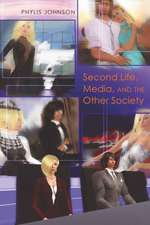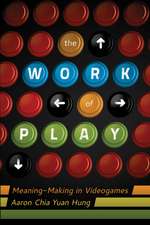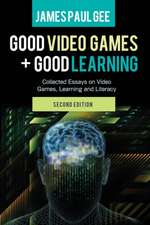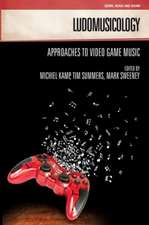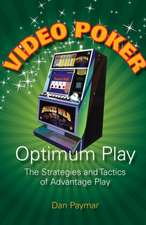Learning in Video Game Affinity Spaces: New Literacies and Digital Epistemologies, cartea 51
Editat de Elisabeth R. Hayes, Sean C. Duncanen Limba Engleză Paperback – 17 mai 2012
| Toate formatele și edițiile | Preț | Express |
|---|---|---|
| Paperback (1) | 384.80 lei 6-8 săpt. | |
| Peter Lang Gmbh, Internationaler Verlag Der W – 17 mai 2012 | 384.80 lei 6-8 săpt. | |
| Hardback (1) | 849.31 lei 38-44 zile | |
| Peter Lang Gmbh, Internationaler Verlag Der W – 29 mai 2012 | 849.31 lei 38-44 zile |
Din seria New Literacies and Digital Epistemologies
- 23%
 Preț: 463.75 lei
Preț: 463.75 lei -
 Preț: 408.72 lei
Preț: 408.72 lei -
 Preț: 349.20 lei
Preț: 349.20 lei -
 Preț: 498.30 lei
Preț: 498.30 lei -
 Preț: 349.15 lei
Preț: 349.15 lei -
 Preț: 499.62 lei
Preț: 499.62 lei - 27%
 Preț: 946.16 lei
Preț: 946.16 lei - 20%
 Preț: 1250.50 lei
Preț: 1250.50 lei - 20%
 Preț: 374.96 lei
Preț: 374.96 lei -
 Preț: 364.56 lei
Preț: 364.56 lei -
 Preț: 364.95 lei
Preț: 364.95 lei -
 Preț: 392.30 lei
Preț: 392.30 lei -
 Preț: 227.51 lei
Preț: 227.51 lei -
 Preț: 250.77 lei
Preț: 250.77 lei -
 Preț: 367.46 lei
Preț: 367.46 lei -
 Preț: 222.84 lei
Preț: 222.84 lei - 9%
 Preț: 703.87 lei
Preț: 703.87 lei -
 Preț: 242.43 lei
Preț: 242.43 lei - 27%
 Preț: 751.63 lei
Preț: 751.63 lei -
 Preț: 244.20 lei
Preț: 244.20 lei -
 Preț: 364.36 lei
Preț: 364.36 lei - 8%
 Preț: 528.17 lei
Preț: 528.17 lei - 27%
 Preț: 752.19 lei
Preț: 752.19 lei - 9%
 Preț: 616.71 lei
Preț: 616.71 lei -
 Preț: 322.02 lei
Preț: 322.02 lei -
 Preț: 250.64 lei
Preț: 250.64 lei - 9%
 Preț: 787.77 lei
Preț: 787.77 lei -
 Preț: 252.40 lei
Preț: 252.40 lei - 9%
 Preț: 750.04 lei
Preț: 750.04 lei - 9%
 Preț: 849.31 lei
Preț: 849.31 lei - 9%
 Preț: 792.05 lei
Preț: 792.05 lei -
 Preț: 246.63 lei
Preț: 246.63 lei - 9%
 Preț: 733.81 lei
Preț: 733.81 lei
Preț: 384.80 lei
Nou
Puncte Express: 577
Preț estimativ în valută:
73.63€ • 77.08$ • 60.93£
73.63€ • 77.08$ • 60.93£
Carte tipărită la comandă
Livrare economică 05-19 aprilie
Preluare comenzi: 021 569.72.76
Specificații
ISBN-13: 9781433109836
ISBN-10: 1433109832
Pagini: 254
Ilustrații: black & white illustrations, black & white tables, figures
Dimensiuni: 150 x 224 x 15 mm
Greutate: 0.36 kg
Ediția:Nouă
Editura: Peter Lang Gmbh, Internationaler Verlag Der W
Seria New Literacies and Digital Epistemologies
ISBN-10: 1433109832
Pagini: 254
Ilustrații: black & white illustrations, black & white tables, figures
Dimensiuni: 150 x 224 x 15 mm
Greutate: 0.36 kg
Ediția:Nouă
Editura: Peter Lang Gmbh, Internationaler Verlag Der W
Seria New Literacies and Digital Epistemologies
Notă biografică
Elisabeth R. Hayes is Professor of English at Arizona State University. Her research interests focus on how the social and cultural aspects of online gaming communities support learning, particularly the development of fluency with digital technology. Her recent books include Women and Gaming: The Sims and 21st Century Learning (2010) and Language and Learning in a Digital Age (2011), both co-authored with James Paul Gee.Sean C. Duncan is the Armstrong Professor of Interactive Media, an Assistant Professor in Miami University's School of Education, Health, and Society and Armstrong Institute for Interactive Media Studies. His current research is focused on understanding the learning and literacy implications of online cultures around games and game design.
Cuprins
Recenzii
This volume is a powerful empirical follow up on Gee's notion of affinity spaces that asks us to move beyond the view of games as merely a designed object to the view of games as both designed object and emergent culture. What is so powerful about this collection of essays is the way in which they document how that combination - technology plus affinity group - enables and empowers truly transformative learning to take place. The authors in this volume represent the brightest young scholars in the field. Together, they offer us a much more nuanced and complex account for learning - one that is far more actionable because it is simply far more correct. This is a must-read for anyone interested in learning technologies in general. (Constance Steinkuehler, University of Wisconsin-Madison) The chapter authors in this highly accessible text invite readers to use, expand, and critique current understandings of learning in affinity spaces. Though focused specifically on video game affinity spaces, findings from the eight research projects reported here have broad implications for how we view learning more generally, whether in school-defined literacy practices, online teacher education courses, or vastly different settings. (Donna Alvermann, University of Georgia)
